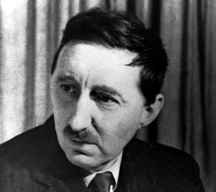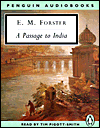|
*E.M..
Forster*
Forster, E(dward) M(organ) (1879-1970), English novelist and essayist, whose novels, written in a style notable for its conciseness and fluidity, explore the attitudes that create barriers between people.
Forster was born in London on January 1, 1879, and educated at King's College, University of Cambridge.
After a short residence in Italy, he turned to writing full time. His first novel, Where Angels Fear to Tread (1905), appeared when Forster was 26 years old and displays remarkably mature style. This was followed by The Longest Journey (1907) and A Room with a View (1908). The construction of these three novels was a reaction to lengthy, formally plotted Victorian fiction. Somewhat autobiographical, they also sounded a theme prevalent in Forster's essays: the need to temper middle-class materialism with due consideration of things of the mind and imagination, in order to achieve harmony and understanding. This theme is treated more fully in Forster's masterpieces, Howards End (1910), with its message "Only connect," and A Passage to India (1924). The latter, the last novel Forster wrote, deals with the conflict of cultures in terms of the ambiguous personal relationship between an English visitor and an Indian during British rule.
Two volumes of short stories were published by Forster during his lifetime, The Celestial Omnibus (1914) and The Eternal Moment (1924). Maurice (1971; written 1913-1914), a novel, and The Life to Come (1972; written throughout his life), a collection of short stories, both primarily on homosexual themes, were not published until after Forster's death.
Forster's convictions and outlook were clearly expressed in his essay collections, Abinger Harvest (1936) and Two Cheers for Democracy (1951), as well as in his travel books, The Hill of Devi (1953), an account of his sojourn in India and the real basis for A Passage to India, and Alexandria: A History and a Guide (1922; revised 1961). The latter was based on Forster's civilian duties there during World War I (1914-1918). A variety of other literary endeavors included editorship, for a brief period after World War I, of the Daily Herald, a Labour Party newspaper; the libretto for the opera Billy Budd (1951), by the English composer Benjamin Britten; and an important piece of literary criticism, Aspects of the Novel, based on lectures he gave at Cambridge in 1927.
Forster,
an honorary fellow of King's College, resided there from 1946 until his
death in Coventry, England on June 7, 1970. Forster's critical reputation
has remained high, and popular interest in his novels has been fueled by
the recent films made from his works: A Passage to India (1984); A Room
with a View (1985); Maurice (1987); Where Angels Fear to Tread (1991);
and Howards End (1992).
Links ~ Find out more about this writer. Links with an * are highly recommended. MSN Encarta's E.. M. Forster Article
|
Personal
Favourites
Other
Books
|

